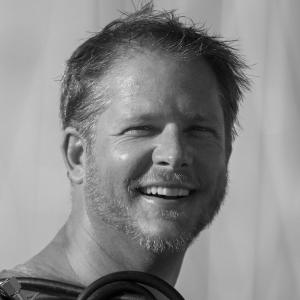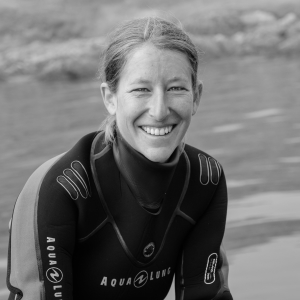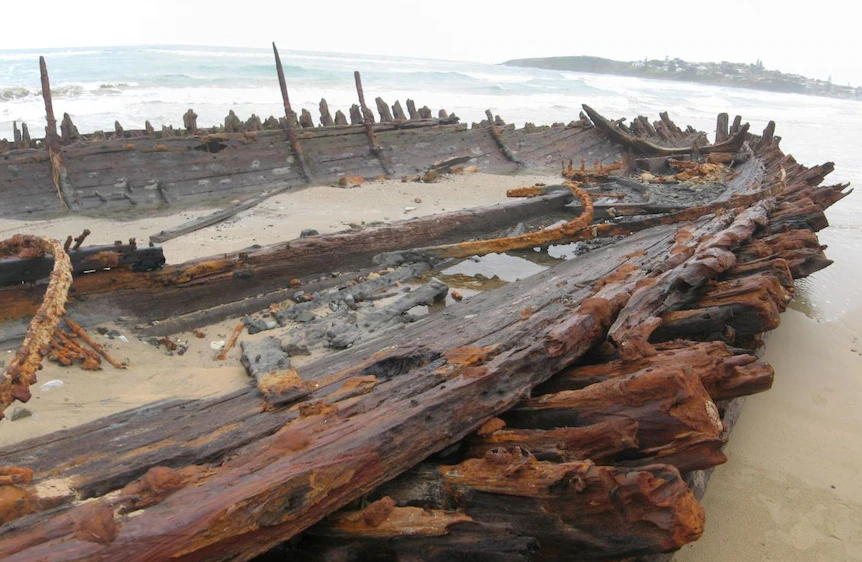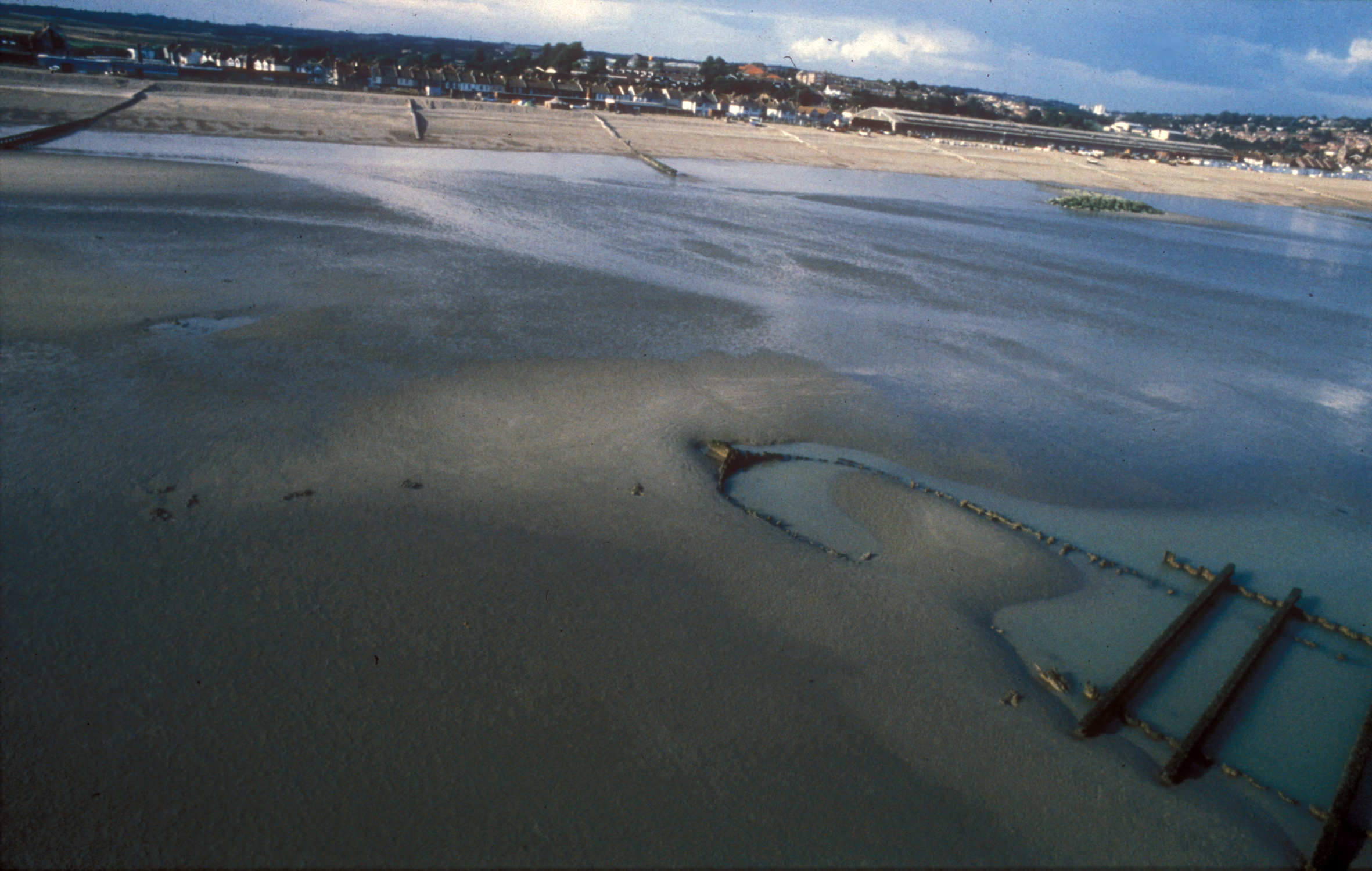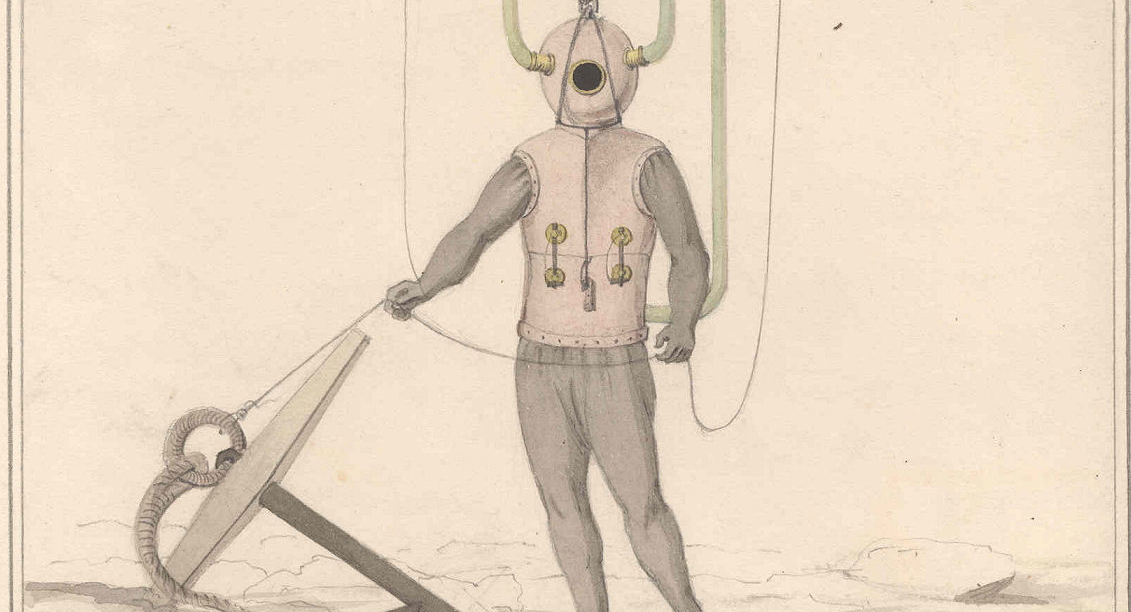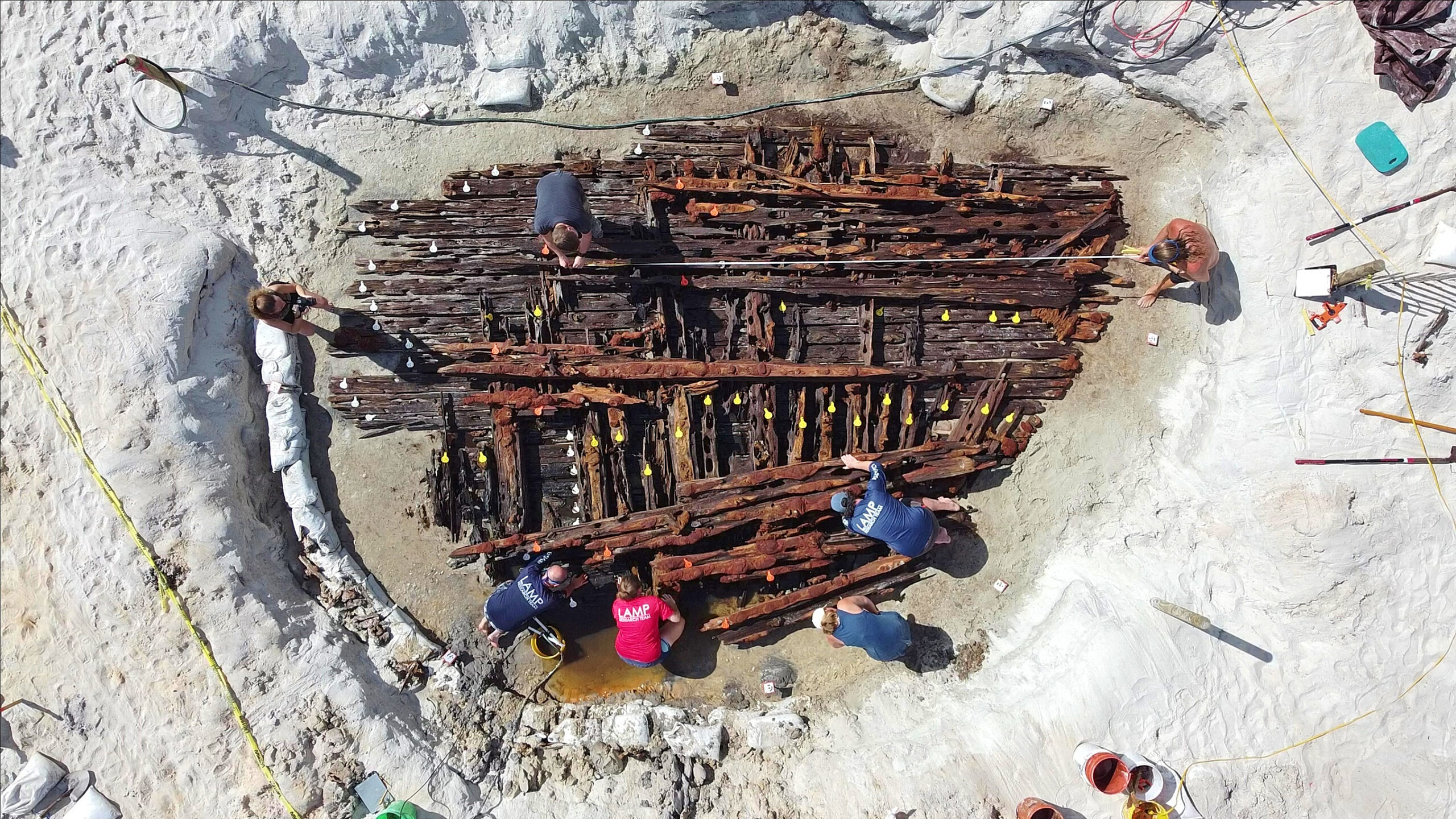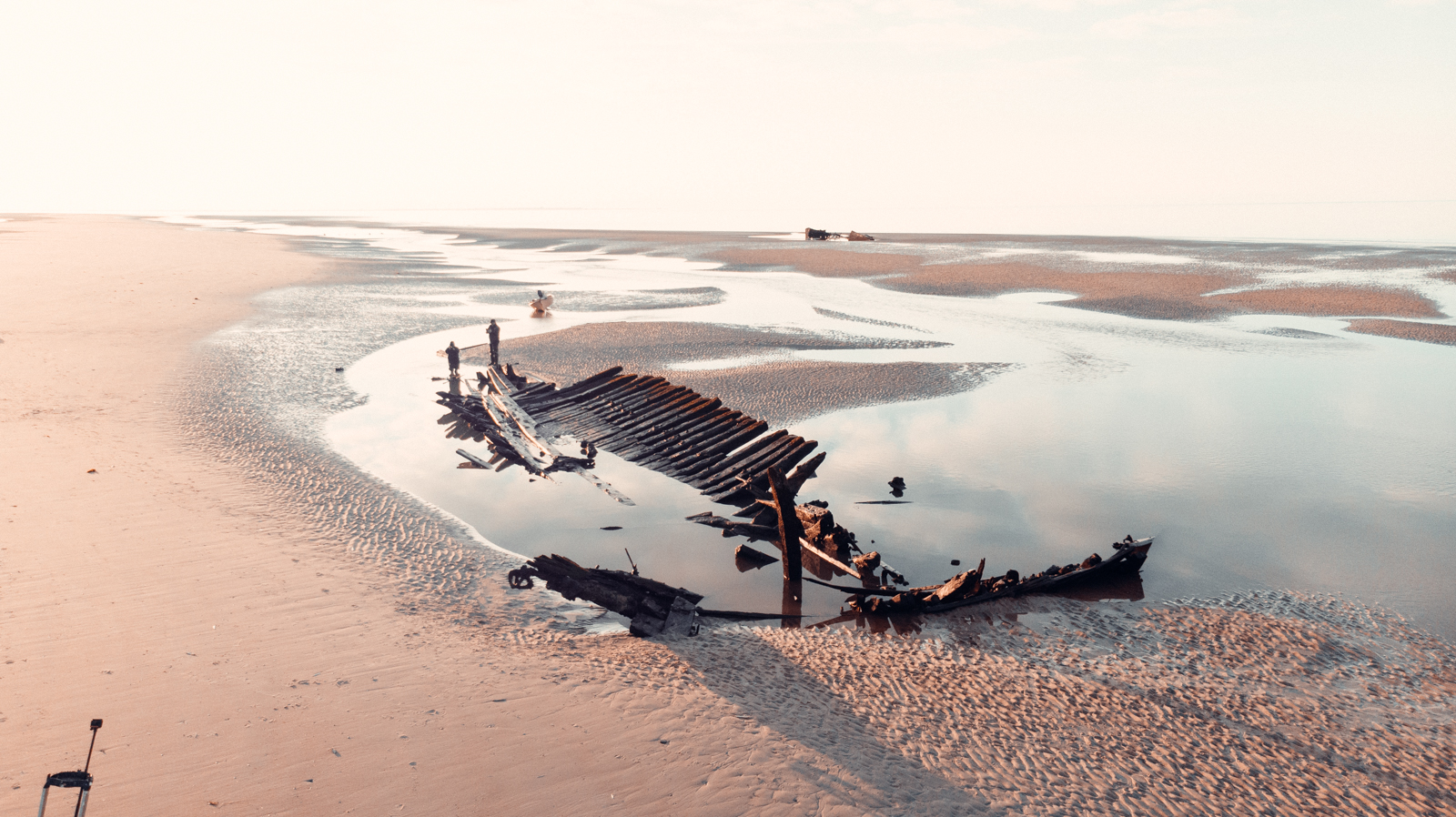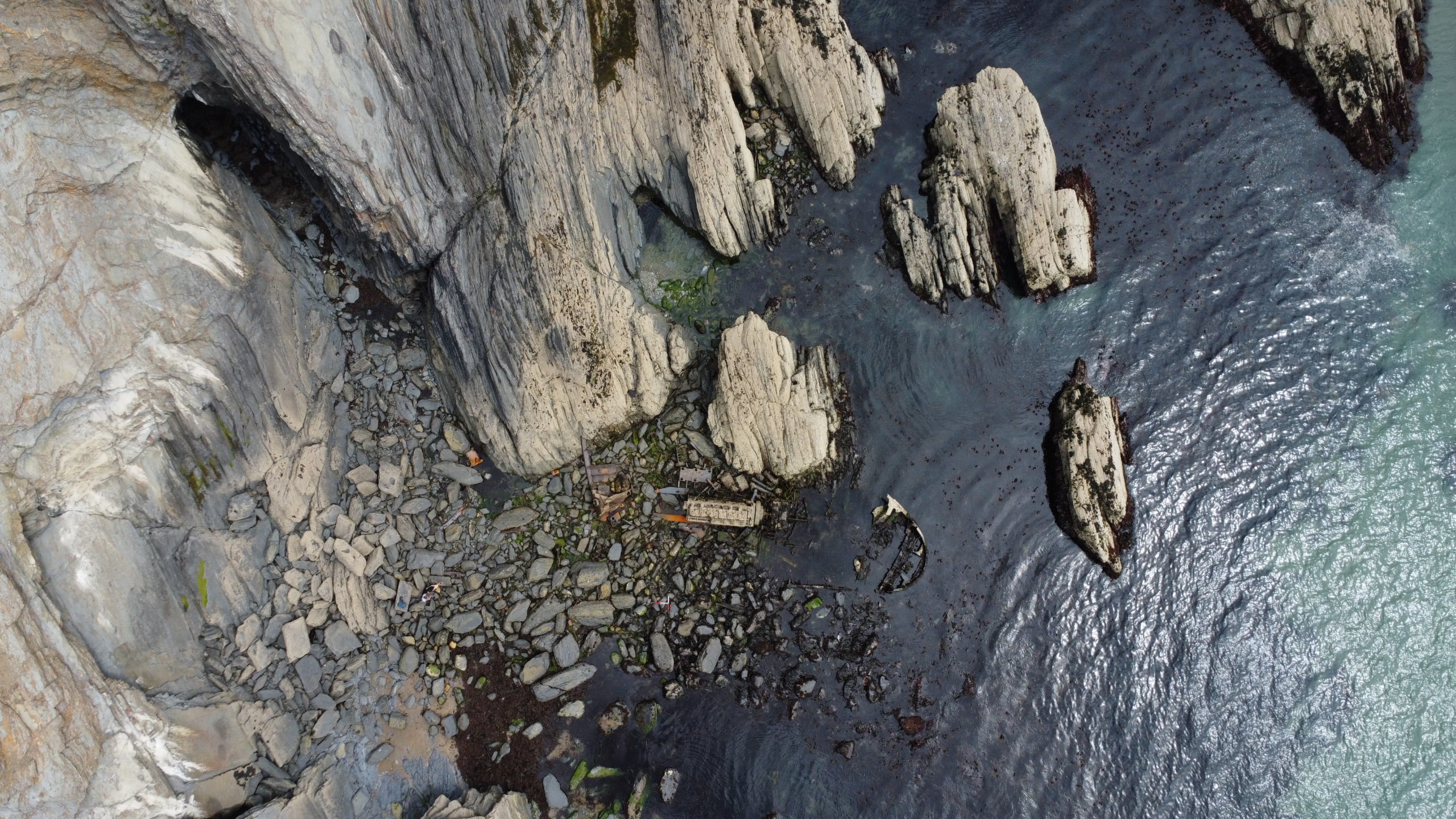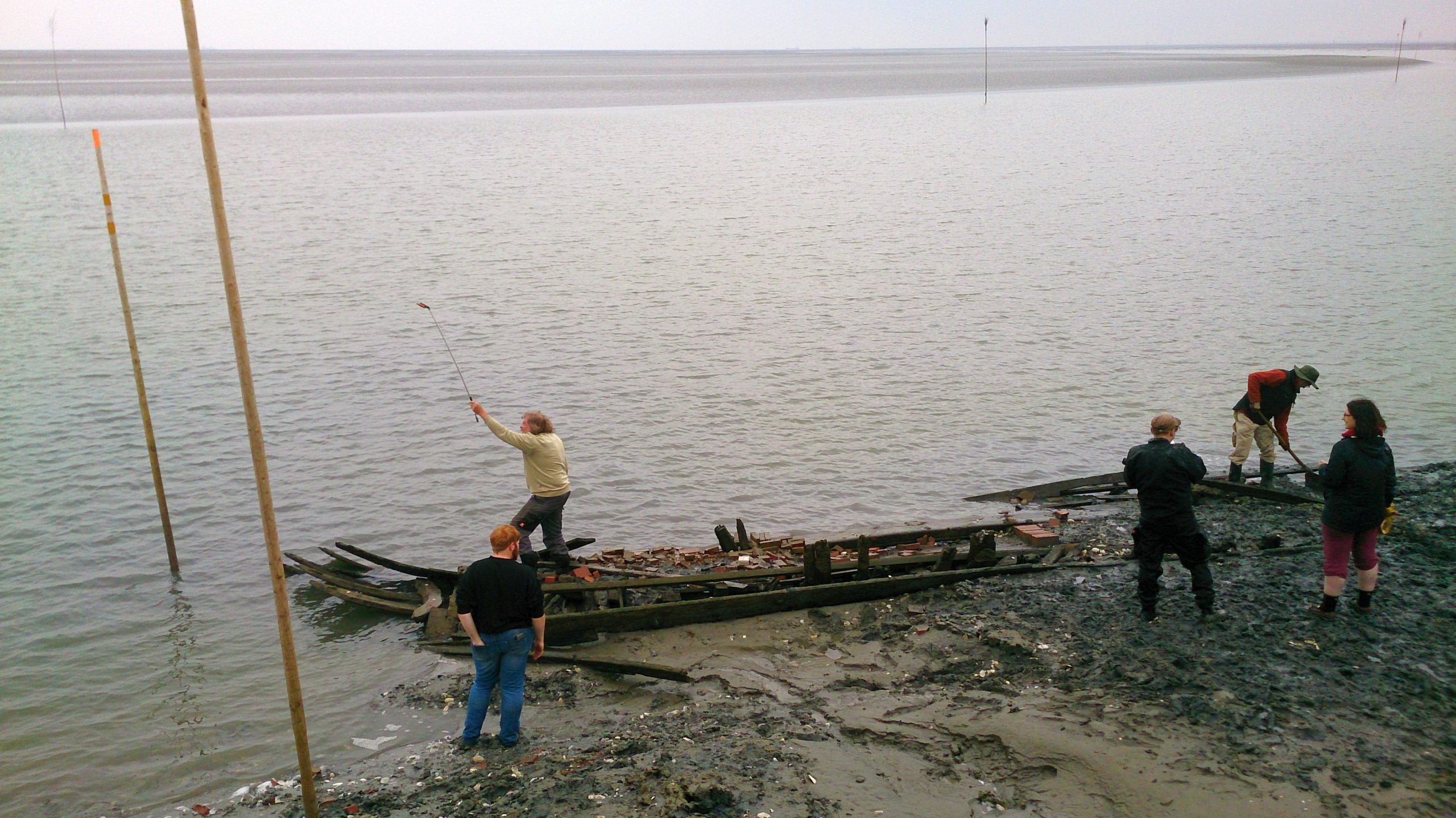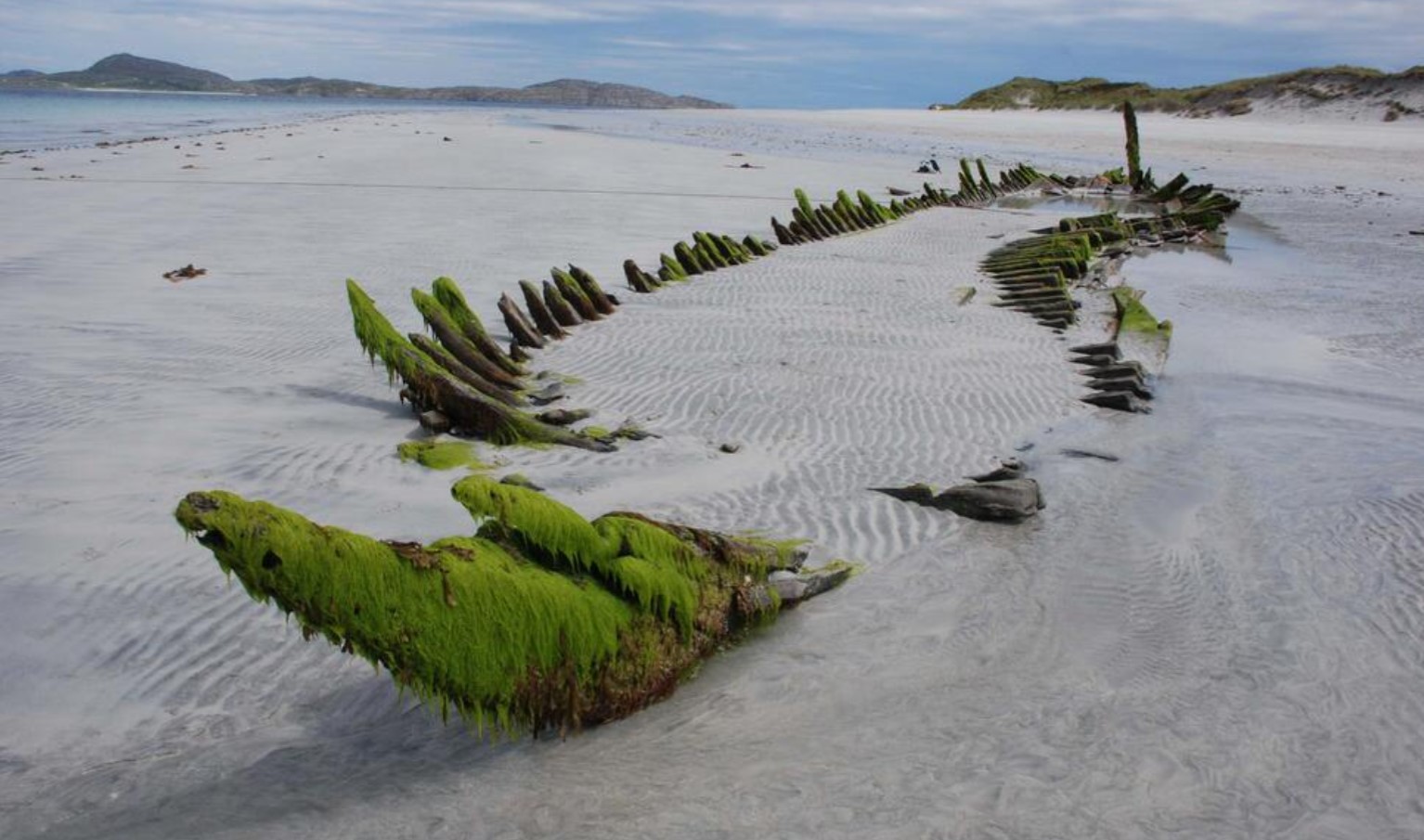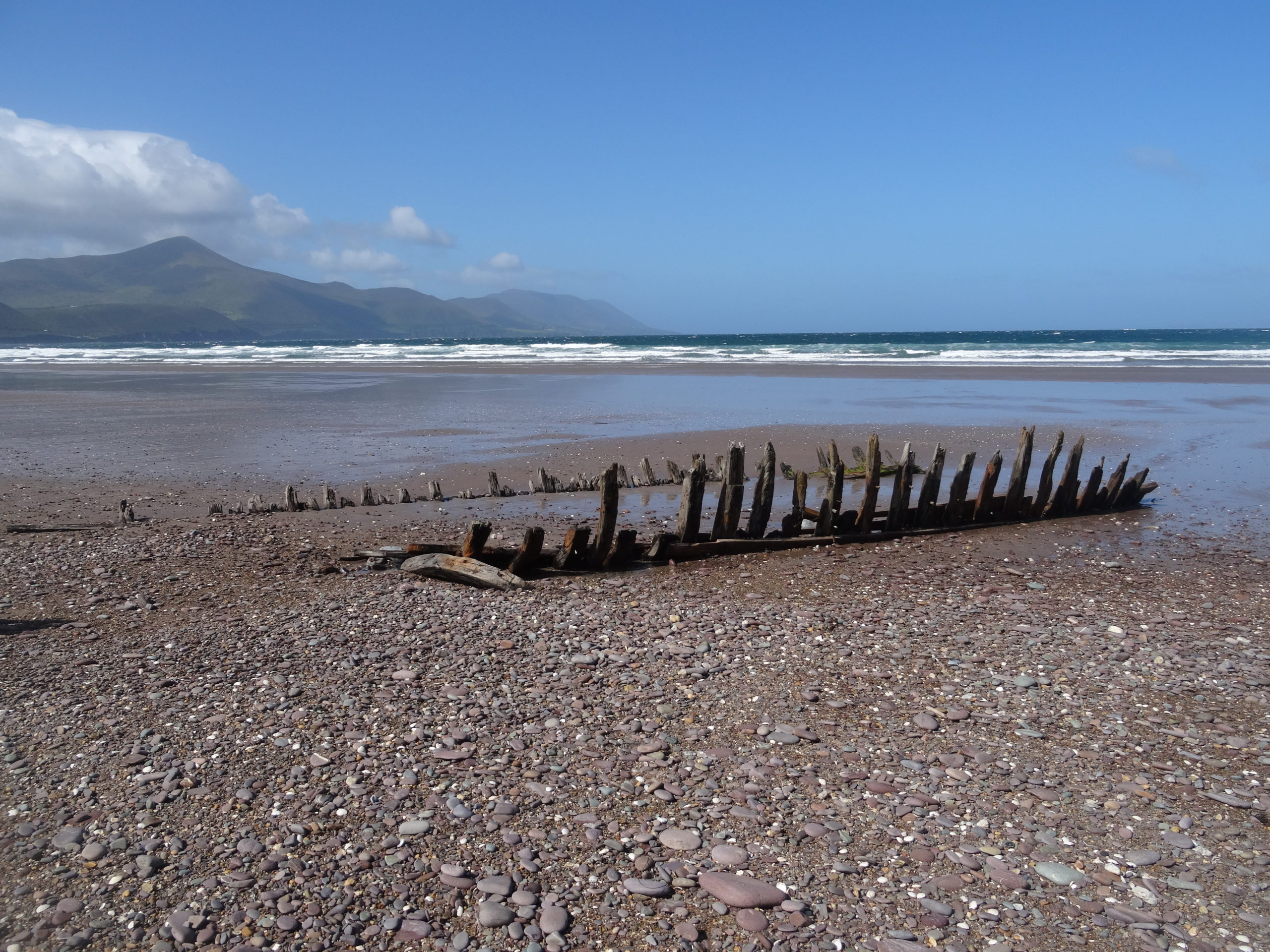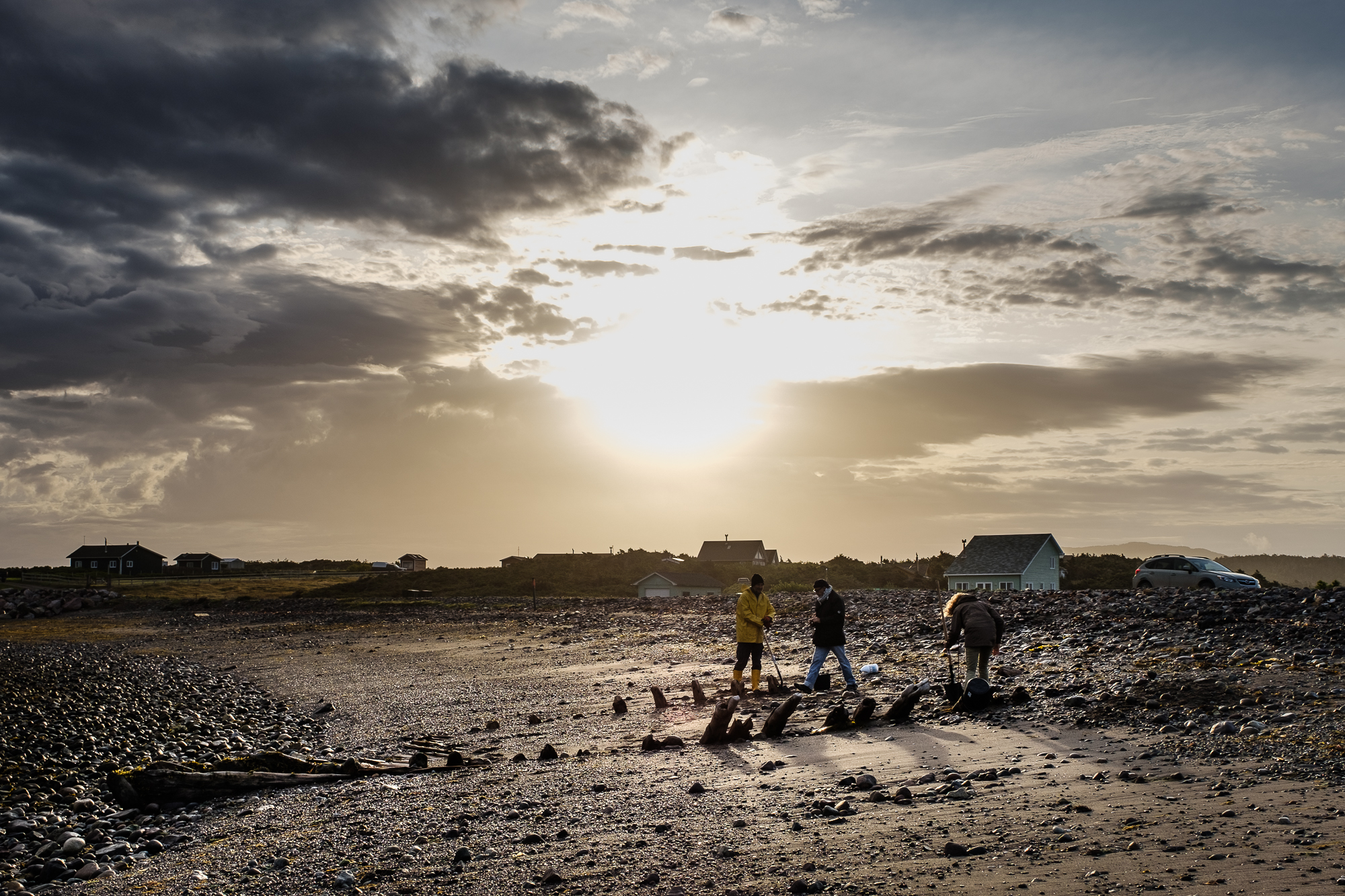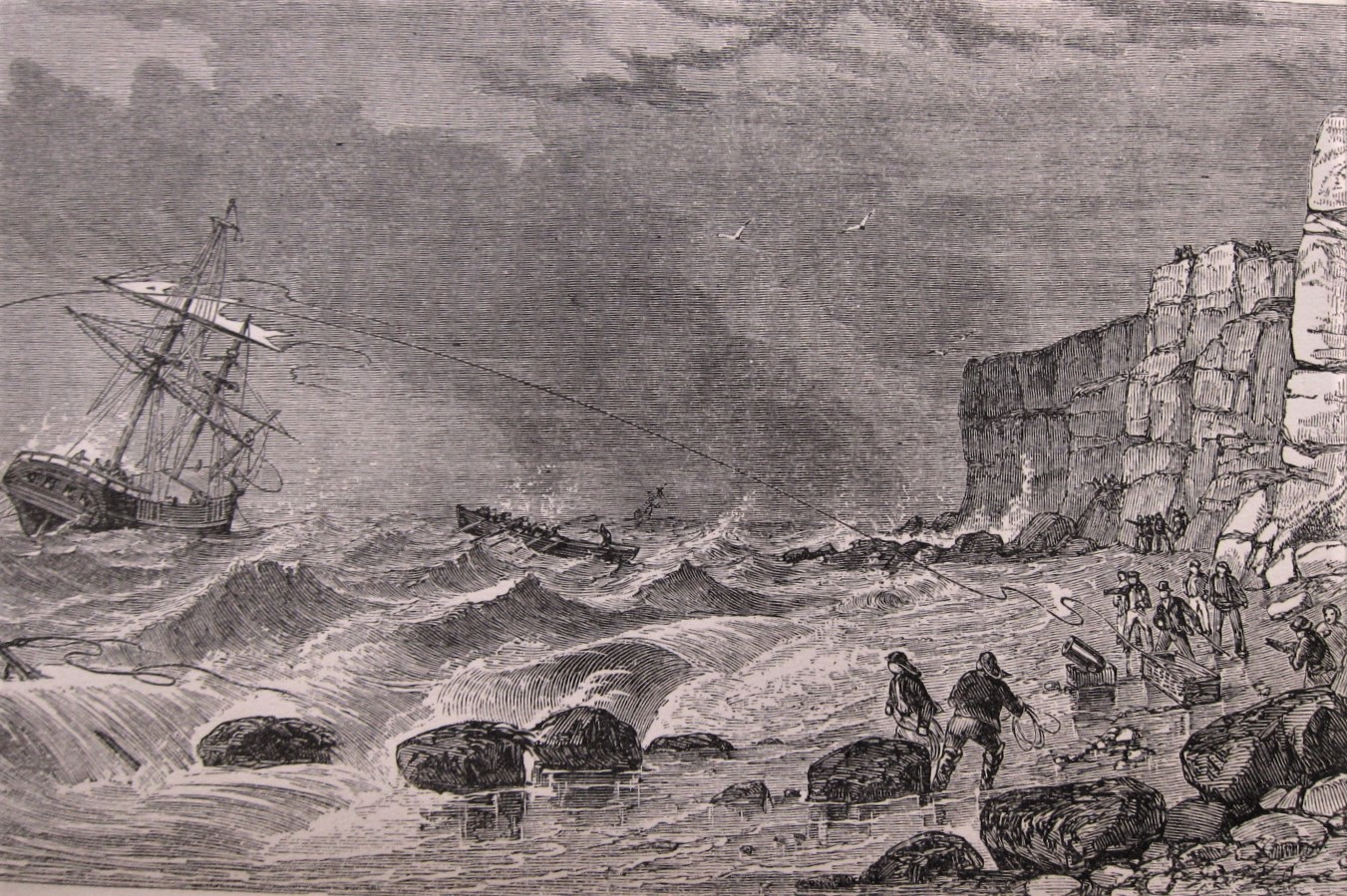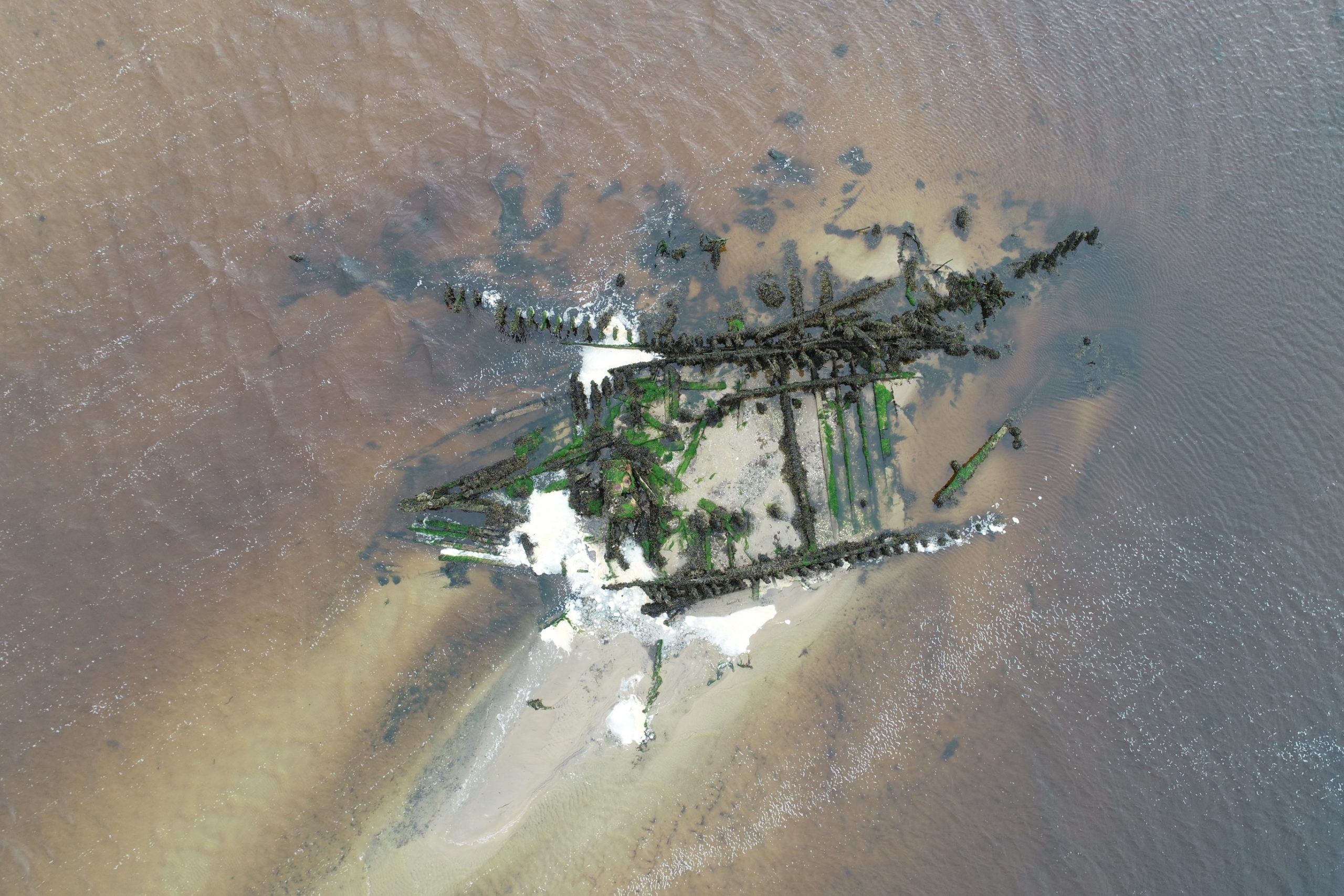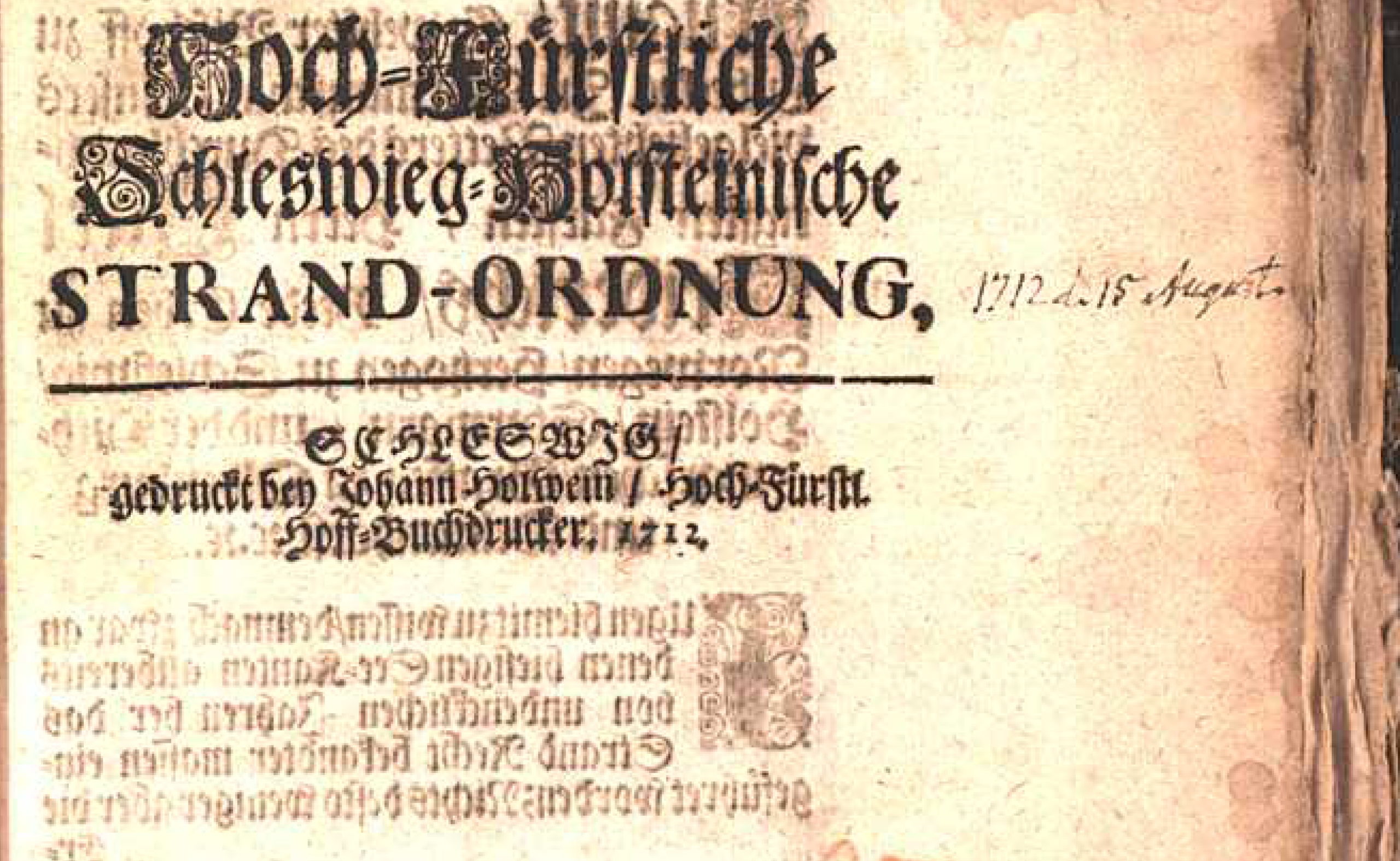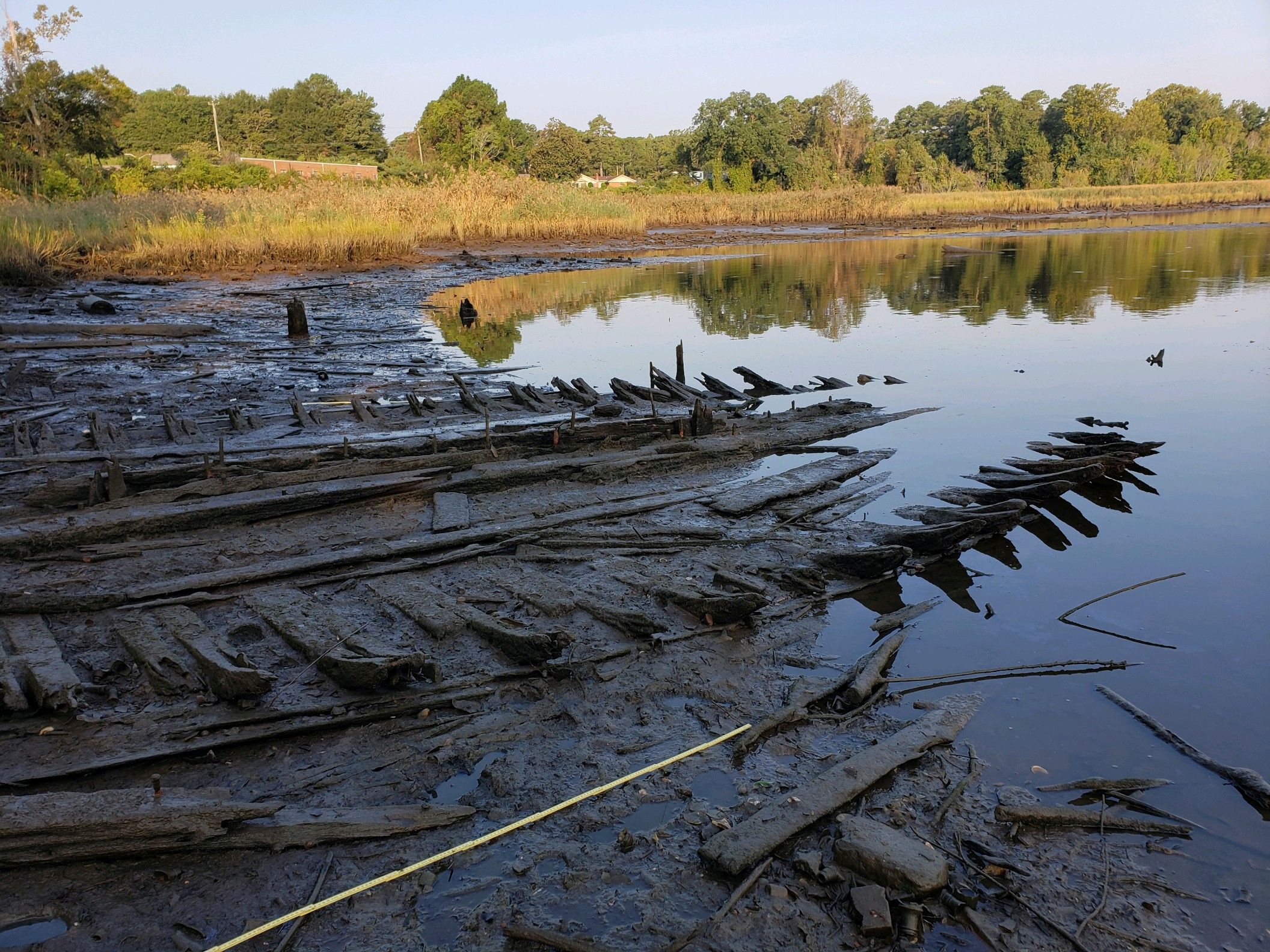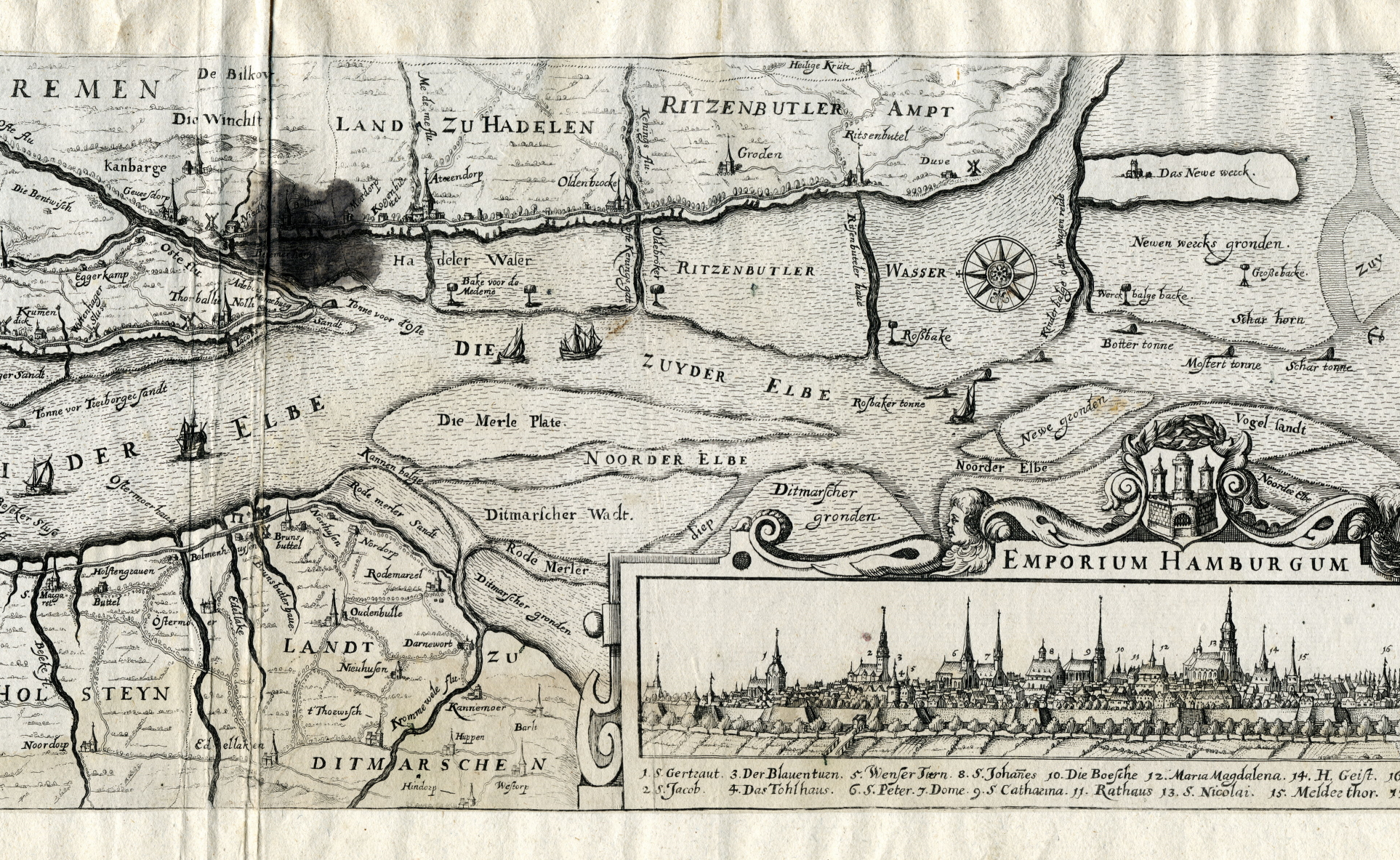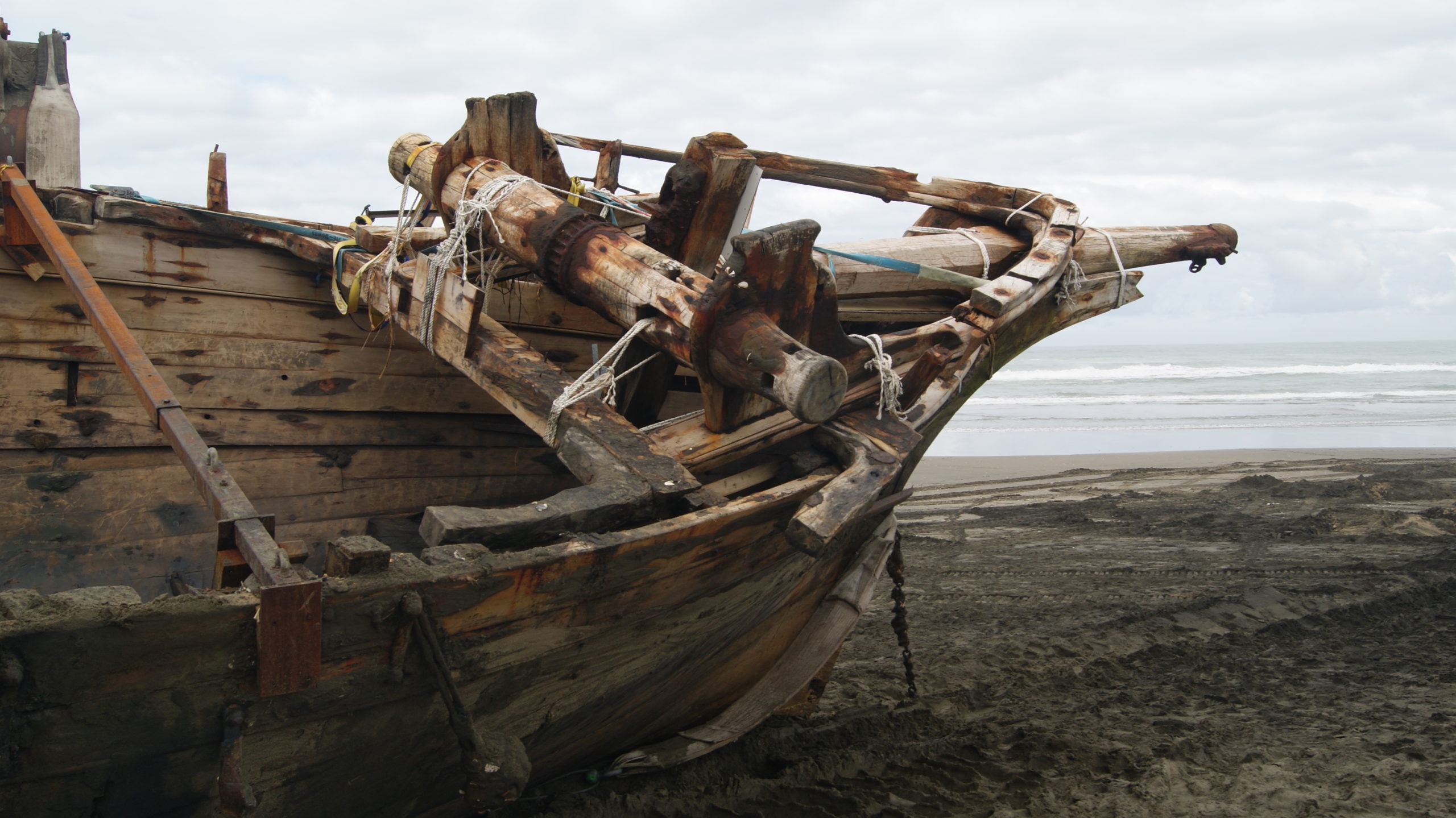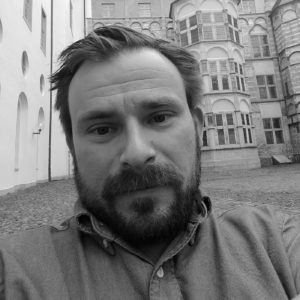The idea behind this conference
In recent years historical shipwrecks in the intertidal zone have become exposed at a perceivably higher rate on a global scale. The wrecks are exposed by coastal erosion and storms, which effects are exacerbated by climate change. Some of the wrecks have been preserved to a stunning degree, enduring the centuries like 'time-capsules'. This applies to cases where the hull was entirely covered by the sediment, acting as a natural protection against marine borers and keeping the site in a permanently waterlogged state. However, once the sediment layer is washed away, the deterioration process begins, often at a dramatic pace. This poses a great challenge to heritage protection authorities, as neither the methods of terrestrial nor underwater archaeology can be fully applied in this difficult terrain. Moreover, the identity of many of those wrecks is unknown. Archival research takes time and once the identity and historical significance has been established, the wreck itself may have already been destroyed by the forces of nature. For this reason, the conference shall provide a forum for maritime archaeologists, historians, geologists and museologists to exchange their experiences and best-practice examples in dealing with this great challenge.
Participation
The keynote speech on November 18 is open to the public and can be attended without registration. The conference on November 19 - 20 is a closed event with no in-person auditorium. However, it can be followed remotely via a livestream on this website.
Conference programme
Please note that the programme is subject to change
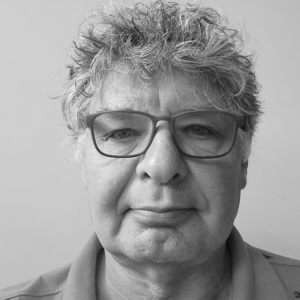
- 18:00 - 19:30
- JERZY GAWRONSKI
- University of Hamburg, Edmund-Siemers-Allee 1, Emil-Artin-Hörsaal (ESA M)
Docking the Amsterdam (1749). Public archaeology of an intertidal Dutch East Indiaman
The public keynote speech by Dr. Jerzy Gawronski is open to the public. He will talk about the shipwreck of the AMSTERDAM, a Dutch East Indiaman foundered off the British coast near Hastings in 1749. The wreck has been known for a very long time, but it was not before 1969 that it was identified as the AMSTERDAM. Preliminary archaeological investigations in the early 1980's have revealed a very rich find assemblage. In the near future, the entire wreck shall be salvaged and brought back to its eponymous port of origin, where the wreck shall be displayed in a museum. This wreck is an interesting long-term example and showcases the potential of well preserved shipwrecks in the intertidal zone, thus a fitting subject for a keynote lecture.
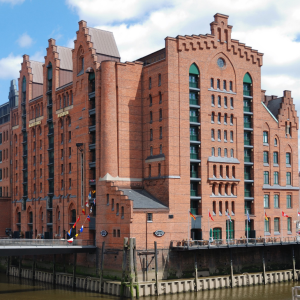
Conference programme (day 1)
Welcome address by the conference organisers and supporters
- 09:45
- Dr. Kurt Bennett (Heritage New Zealand)
The “Daring” Rescue: The story of New Zealand’s best preserved mid-19th century schooner
- 10:40
BREAK
- 12:00 - 14:30
- German Port Museum
LUNCH BREAK in the Hamburg Port Museum and guided tour on the barque PEKING (1911)
A transfer will be organised from the IMMH to the Port Museum.
- 16:00 - 16:30
COFFEE BREAK
- 16:50
- Dr. Charles McGimsey (Louisiana Office of Cultural Development)
Preservation, Public Interaction, and the Brookhill wreck in Baton Rouge. Louisiana, U.S.
- 17:20-17:30
BREAK
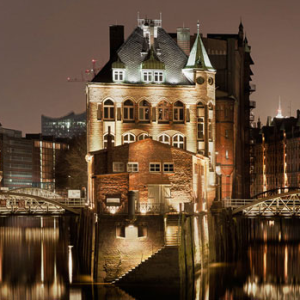
- 19:00 - 21:00
- WASSERSCHLOSS Speicherstadt, Dienerreihe 4
CONFERENCE DINNER

- 09:00
- International Maritime Museum (KDM Lounge - Deck 7)
Conference programme (day 2)
- 9:10
- Prof. Dr. Gabriel Zeilinger (University of Erlangen-Nürnberg & German Maritime Museum)
Shipwreck in Medieval and Early Modern Times: On the history of maritime risk-taking conserved in language, writing and objects
- 9:30
- Dr. Julian Whitewright (RCAHMW)
The inter-tidal shipwrecks of Wales: Challenges and Opportunities
- 9:50
- Dr. Christopher Jacob Ries (Strandingsmuseum St. George)
Wrecks, farmers and fishermen: the beginnings of commercial diving on the Danish West Coast 1830 – 1910
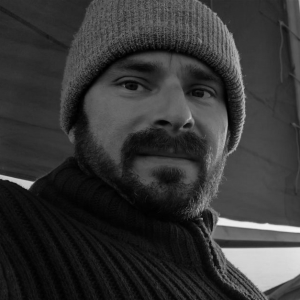
- 10:10
- Dr. Daniel Zwick (State Archaeology Department of Schleswig-Holstein)
The Riddle of the Shifting Sands: The historic shipwrecks of the North Frisian Wadden Sea exposed by coastal erosion
- 10:50 - 11:30
COFFEE BREAK
- 11:30
- Stefan Brenner (University of Kiel)
Between Beach Rights and Beach Robbery - the Lower Elbe as a Conflict Area in the 13th and 14th Centuries
- 11:50
- Alec Ewing, & Corina Hordijk (Stichting Texels Museum)
Musealization of rare and clandestine textiles from Texel’s Palmwood Wreck

- 12:10
- Robert Shaw (The Discovery Programme, Centre for Archaeology and Innovation Ireland)
The CHERISH project: Investigating the impacts of climate change on intertidal wrecks
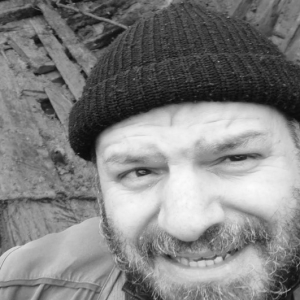
- 12:30
- José Manuel Matés Luque (Arqueocean)
Removing the mud from forgotten wrecks in the intertidal zone in the Basque Country, Spain
Topics
Shipwreck Archaeology in the intertidal zone:
• circumstances and timeline of discovery
• type and history of the studied wrecks
• field methodology in challenging conditions
• environmental and anthropogenic threats
• long-term monitoring, wrecksite formation, coastal erosion
• shipwrecks and the public: looting threat, sightseeing, volunteers, conservation and museums
Stranded ships and the historical narrative:
• the law and the sea: ship-scrapping , beachcombing, piracy
• the economy of wrecks: wrecking shares, insurances, salvaged goods, re-use
• the local community and memoryscapes (e.g. cemeteries, chronicles of accidents and loss of life, saved crews, narratives, local myths)
• flotsam and jetsam in the museum: what is a wreck, what is scrap?
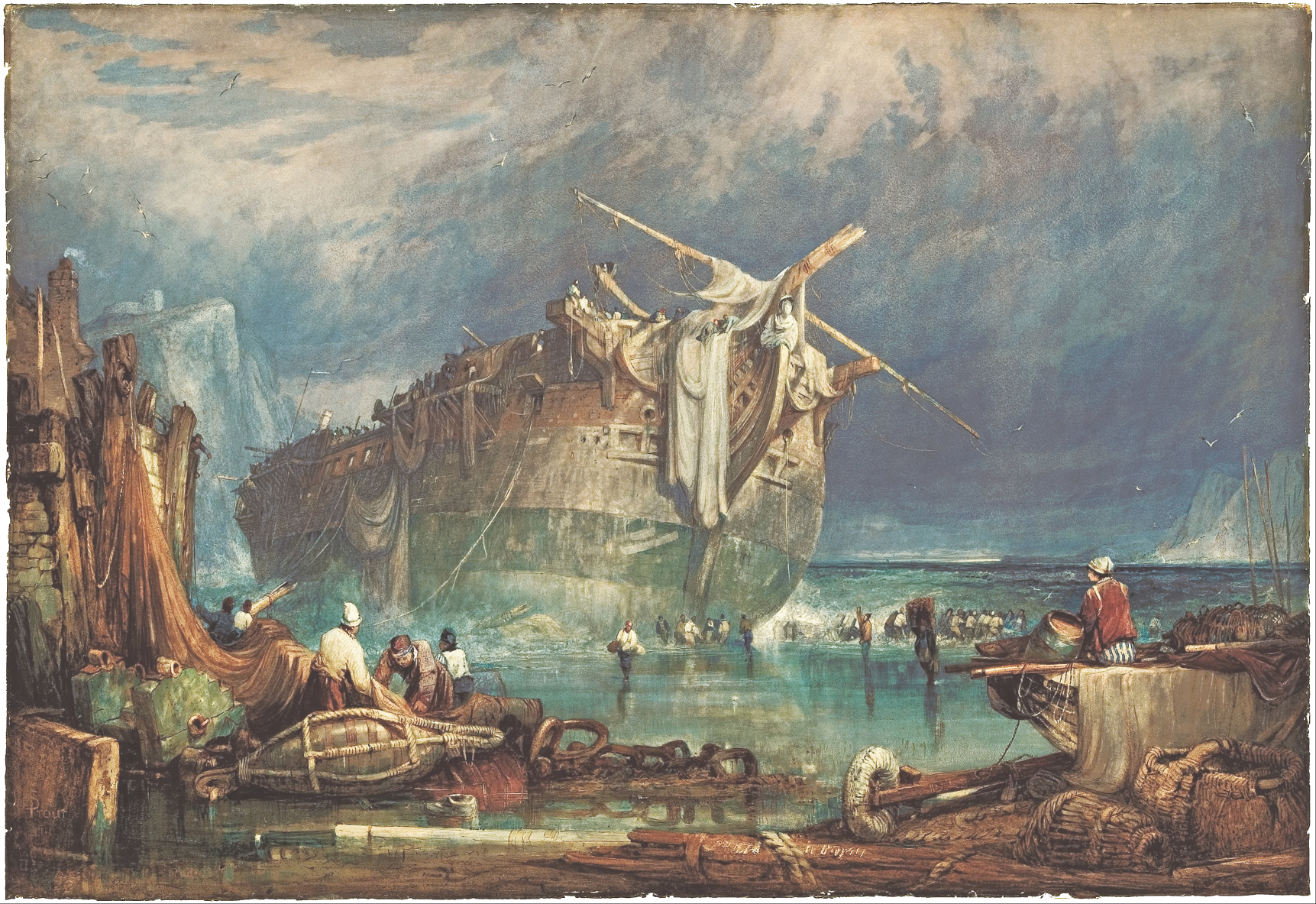
Wreck reports from all over the world
Conference contributions
Abstracts
England (United Kingdom)
CITiZAN: shipwrecks and smartphones, the rapid recording of vessels in the intertidal zone by ANDY SHERMAN
Louisiana (United States)
Preservation, Public Interaction, and the Brookhill wreck in Baton Rouge. Louisiana, U.S. by CHARLES MCGIMSEY
United Kingdom
Towards a Coastal History of Wrecking in the North Sea: legality and cultural practice of British ‘wreckers’ in the 18th century by DAISY TURNBULL
Europe
Shipwreck in Medieval and Early Modern Times: On the history of maritime risk-taking conserved in language, written tradition and objects by GABRIEL ZEILINGER
Australia
Now You See It/ Now You Don’t: Management of the Buster Shipwreck at Woolgoolga, NSW by BRAD DUNCAN
United Kingdom & Netherlands
Docking the Amsterdam (1749). Public archaeology of an intertidal Dutch East Indiaman by JERZY GAWRONSKI
Netherlands
Musealization of rare and clandestine textiles from Texel’s Palmwood Wreck by CORINA HORDIJK & ALEC EWING
Denmark
Early commercial wreck-diving on the west coast of Denmark 1838-1938 by CHRISTOPHER JACOB RIES
Florida (United States)
‘Skeletons of Foundered Ships:’ Beached Shipwrecks of St. Augustine, Florida, America’s Oldest Port by CHUCK MEIDE
Schleswig-Holstein (Germany)
The Riddle of the Shifting Sands: The historic shipwrecks of the North Frisian Wadden Sea exposed by coastal erosion by DANIEL ZWICK
Wales (United Kingdom)
The inter-tidal shipwrecks of Wales: Challenges and Opportunities by JULIAN WHITEWRIGHT
Lower Saxony (Germany)
Brief Encounters – Wreck Investigations in the Inter-Tidal Zone of Lower Saxony’s Wadden Sea 2006 – 2019 by MICHAEL WESEMANN
Scotland (United Kingdom)
Secret in the Sands: The discovery of wooden wreck remains on the island of Fuday, Sound of Barra, Outer Hebrides, Scotland by DAN ATKINSON
Ireland
The CHERISH project: Investigating the impacts of climate change on intertidal wrecks by ROBERT SHAW
Saint-Pierre and Miquelon (France)
Saint-Pierre and Miquelon (France): The Archipelago of Shipwrecks, from Myth to Study by CÉCILE SAUVAGE
United Kingdom
Neither Hero nor Victim: Intertidal Shipwrecks and Responses of Coastal Communities in 19th Century Britain by CATHRYN PEARCE
Basque Country (Spain)
Removing the mud from forgotten wrecks in the intertidal zone in the Basque Country, Spain by JOSÉ MANUEL MATÉS LUQUE
United States
Tides of change: coastal geomorphology and the management of shipwrecks on beaches by JENNIFER ELIZABETH JONES
French Polynesia
Shipwrecked in Paradise – History and Archaeology of the German merchant raider SMS Seeadler by FLORIAN HUBER
Schleswig-Holstein (Germany)
Strandordnungen in early modern Schleswig-Holstein and their historical context by HENNING ANDRESEN
Virginia (United States)
The Nansemond Ghost Fleet: Intertidal Sites as Occasional Museums and Stewards of Community Histories by BRENDAN BURKE
Hamburg (Germany)
Between Beach Rights and Beach Robbery – the Lower Elbe as a Conflict Area in the 13th and 14th Centuries by STEFAN BRENNER
New Zealand
The Daring Rescue: The Story of New Zealand’s Best Preserved Mid-19th-Century Schooner by KURT BENNETT
Poster session
Funded by

